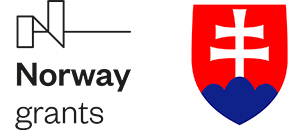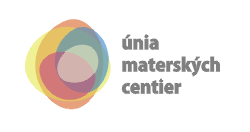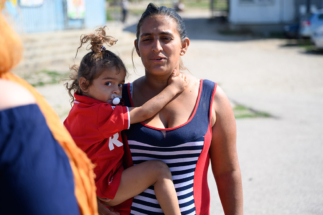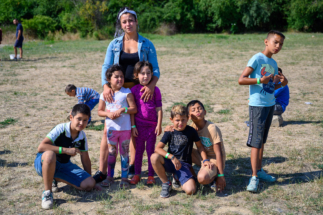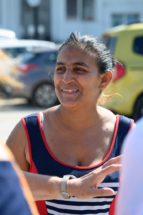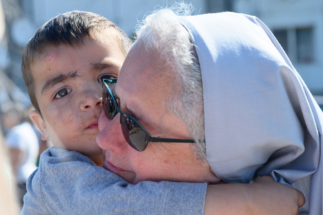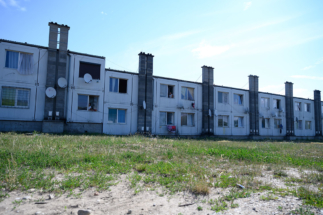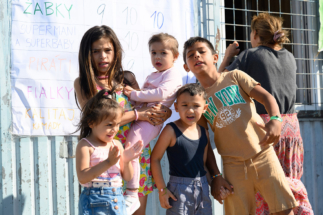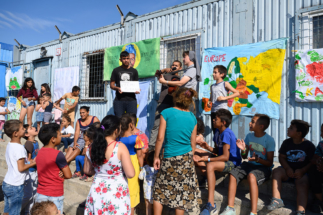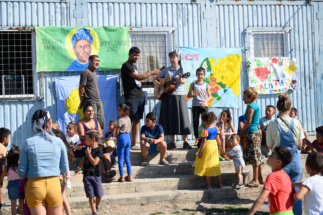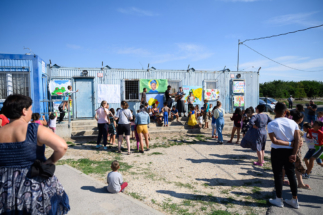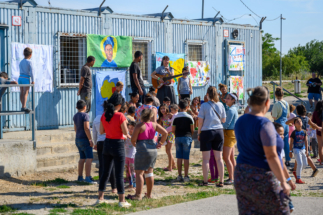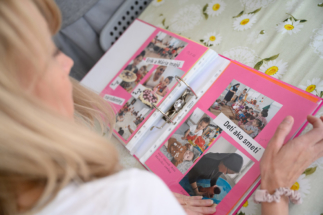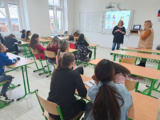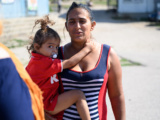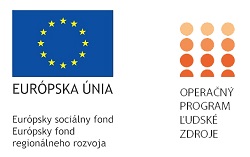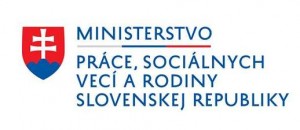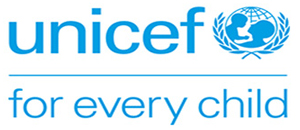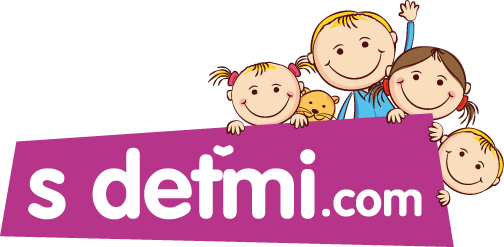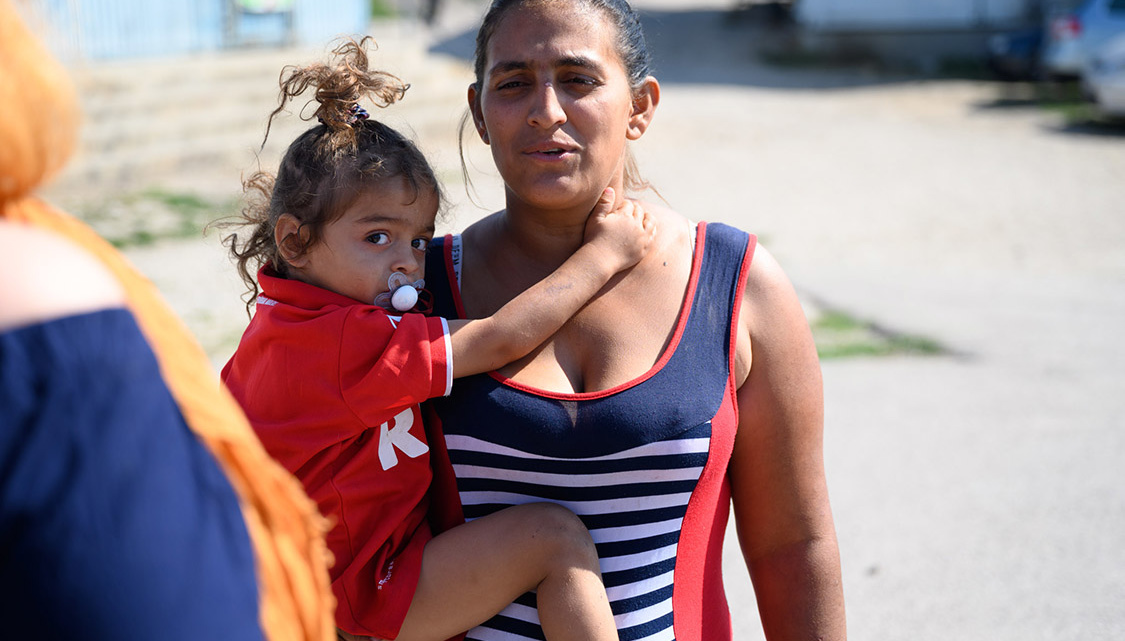
We wanted children to come to a nice environment
6. marca 2023“… we don’t speak Slovak at home. Only Hungarian. And Romany,” Rózka said. She is holding a small boy with a big pacifier in her arms, three other children are running around her. One of the girls is wearing a blue and yellow dress, like Snow White from the Walt Disney movie. “That’s our Princess,” laughs Sister Eva Pullmannová, who is standing next to me. “Really, a princess?” I say. “Of course, they have two or three other names that we give them,” Rózka said.
You haven’t been to Orechov dvor? We’re not surprised – almost nobody goes there. It’s literally an excluded community. It was created when the city of Nitra wanted to solve the situation about people who didn’t pay rent for the apartments. They built two apartment buildings of a lower standard for them, then a couple of portable cabins, and evicted them. Literally into a field. There’s a gravel path leading to the houses, the closest bus stop is about a kilometer away.
“You know, people don’t like them. They make noise, they shout, it’s unpleasant. Yeah. Sometimes they even cause trouble, misbehavior. Then people treat them negatively because they’re afraid of them. And it’s passed on to children who can’t help it. You would need to walk about two kilometers from the settlement and sometimes – this happened to me and my colleague – that the bus comes, slows down, but doesn’t pick them up. Another thing that happened to me is that I took the kids out on a field trip, I asked for tickets, and only had a larger bill, about twenty euros, and the driver said: “I don’t have change, get off the bus.” I don’t know if he would have behaved like that if there were white children there.”
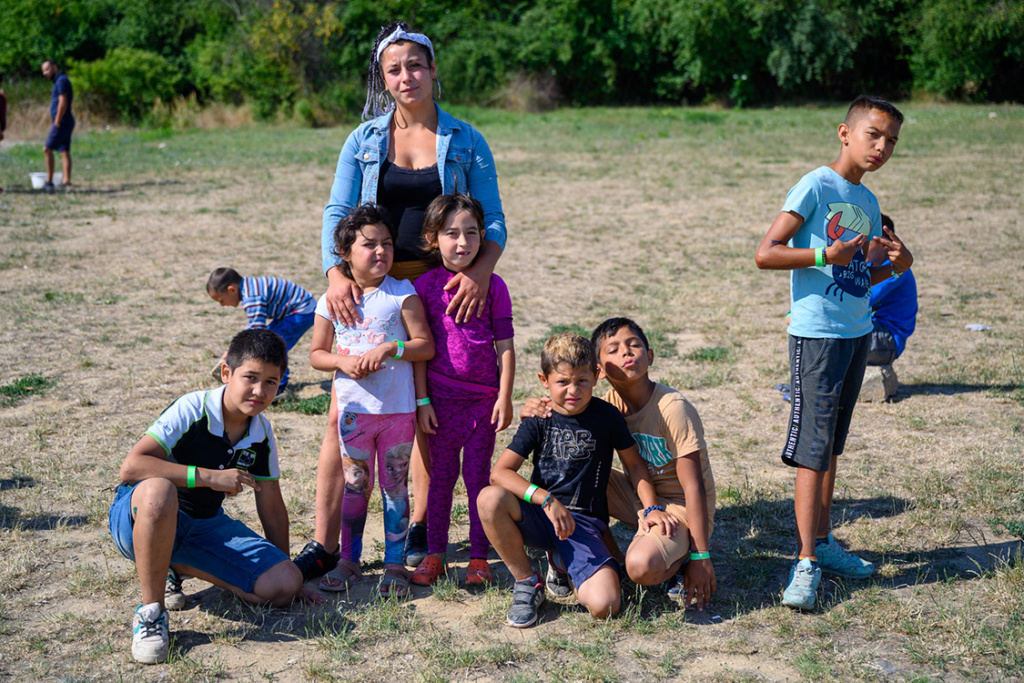
Now more than two hundred people live in the community, including many children.
MC Dúha in Orechov dvor
And this is where the mother center Dúha started operating in 2015. Something makes it special, it differs from other mother centers in Slovakia – it was founded by the Salesian Sisters.
“We felt that we would be needed,” said one of them, Eva Pullmannová. What was it like when they started? “Since we are an educational institute, our intention was to be able to teach in a school. Right in the settlement, we have established year zero of the school. That was our beginning. But we kept wondering. What would be good for these children? What would they need? You know, we experience many things through faith. I was praying, and it occurred to me, “Mother Center”. As soon as we got it, we started looking into how it actually works and we contacted the centers in Zlaté Moravce and Nitra. They actually advised us to sign up for a Montessori course – we didn’t even know what it was. But it appealed to us, after all, Mária Montessori also worked with poor children, and look at the things she was able to do! And then we gradually started buying tools, furnishing the space.
We had to give these children something to play with. At first, we had something from anyone, made of plastic, but now we have really good quality wooden Montessori toys.”
Usually, maternity centers are born around some premises – however, there were no premises at Orechov dvor – if we exclude the non-residential premises, the former carriage room in one of the apartment buildings. That’s where the center started.
“We wanted children to come to a nice environment. So that they, and their moms, could see that there’s another way. There, in those houses, you couldn’t do that. And so we literally had to build that place. Sure, they helped us at the City Hall – they gave us a plot of land. The city actually saw this site as a ticking time bomb, and they were happy that we came along and were going to do something about it. We basically had a bunch of portable cabins, there were toilets and a kitchenette inside, we had to arrange everything else. In the beginning – in 2015, a few mothers came, at first it was like “sometimes they turned up, sometimes they didn’t”, but then they started coming.”
What does it actually look like in the center in an excluded location? It’s very different from other mother centers. Just by having Dúha working every day, eight hours, Monday, Tuesday, Wednesday, Thursday, Friday… it gives moms and kids a sense of security and rhythm. It’s not an experience, it’s everyday life.
“We have a morning circle where we welcome every child, then they go eat – have breakfast. Yes, food is a big motivator. They eat breakfast in the Montessori playroom – the children set their own table, peel their bananas, we make tangerine or orange juice together, and then they clean up after themselves. We do not do all activities together – for mothers and for children. Sometimes they separate. For example, the mothers bake – pizza rolls, ducat buns, cakes. Or they need to do laundry, we have a washing machine, they often don’t have one or it’s broken and don’t have the money for a new one.”
One of the criteria for the center’s success is that the children return.
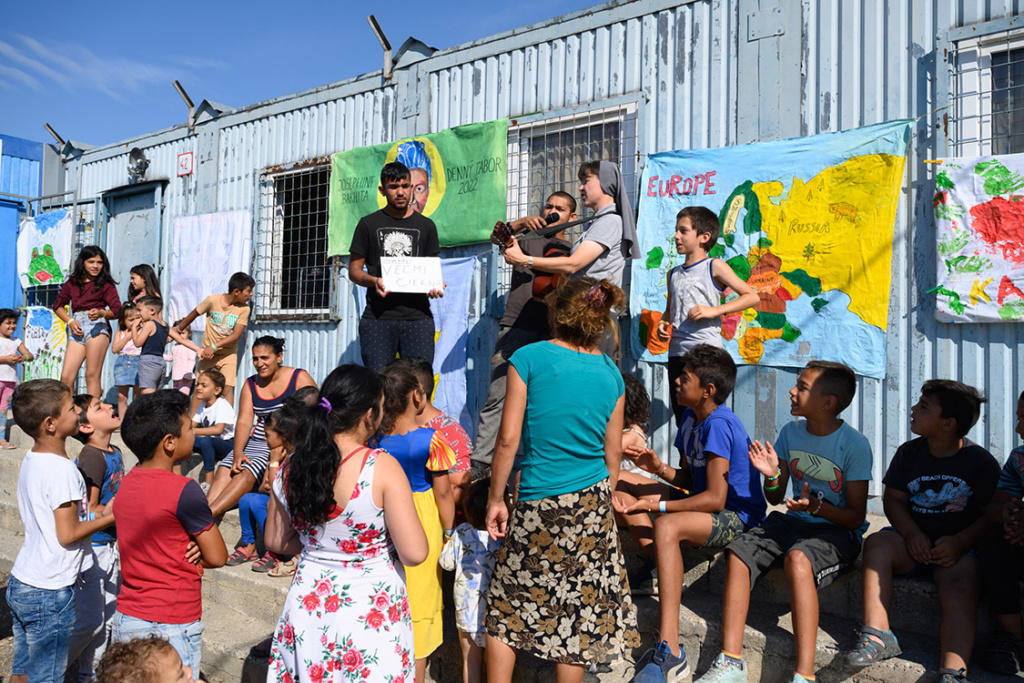
MC Dúha in Orechov dvor
“Even when the afternoon program ends, someone still needs something here. The older ones also come back. To have their knees bandaged. To have their bikes inflated… really.”
Work in excluded communities is built on trust. People need to feel that the projects for their children are real, that the people who do them not only have erudition, but actually understand their situation and respect them. How does one convince moms that taking their kids to a mother center is good for them?
“Less of them come during some periods, others more. It’s just that now – after more than eight years – it’s actually kind of a tradition that every mom who has a child wants to come to us. There are mothers who only come to us when we’re out, in the summer, or on trips. Not inside. Never. It’s a big thing for them. Their children drag them to us. That’s what they tell us, “sister, the children want to go to kindergarten”. They call us “kindergarten”. And so we feel that they are comfortable with us. During the summer months, we have a space with a trampoline, swings, pool… we take it out every day, toy bikes. We have to keep an eye on it, or else some older kids would come… It’s not easy.”
Whenever you come to the Dúha mother center today, you can see that it really works. From morning until late afternoon. The activities range from playing games with the children, cleaning, cooking, distributing material aid – and yes, even praying together – to counseling in the various situations that life brings. Or just talking.
“The mothers come here everyday. They like it when we prepare food together or do laundry,” says Eva Pullmannová. “Twenty or thirty women and children meet here at once. We try to get them to play and learn, just have fun and do things together. We go with them to pick strawberries, we also picked apples, then we process it together and use it for the children at the maternity center. For the trips. We bake cakes, they decorate them themselves for the holidays. We had this goal from the beginning: educating moms. We actually had it planned differently. That once a month we call in specialists – gynecologist, pediatrician, recovering addicts. That we would inspire them this way. But we gradually stopped doing that. Because they simply didn’t come. Strangers – they get scared. They come when they feel safe or when they feel like it, they can’t plan. You learn that rhythm, for example, it’s hard to do something when there’s benefits or pensions. You have to plan for what comes.”
Is there anything that surprised Eva Pullmannová while working in the mother center?
“This place grew on us, we put down roots. Now I feel that we can guess – what will interest our mothers – I’m surprised it took us so long. Last year, for example: they made window decorations all March. One by one, like in the telephone game. They were like “I want those too”. So they all made cutouts, we even had a contest for the prettiest window. And all 15 moms participated in that. Wow. Then we did Roma day. But all the local kids go there, big kids, little kids, all of them – we hold competitions with them, cook goulash… so that’s what we do. We make headbands, we knitted… we sewed pillows together. They respect us now. You know, there are some moms who are not able to organize themselves or are not interested. They are women who have strong, um… mental limitations, they don’t go. But we do call them, of course, especially in the summer, when they can see that something is happening from their windows. And their children draw them out. It’s a chain. I see a mother, a mother-in-law, I’ll call them. Really, sometimes fathers and in-laws come. Sometimes, in some families, when, for example, the wife was employed, the fathers would come to us. And it wasn’t easy for them: they have this superstition that “where there are women, a man can’t be without his wife.” It took them a while to get over it.”
Work in excluded communities is hard, it’s thousands of subtle things and you can’t always see the results right away, quite the opposite: often it’s only after years, when we look back over our shoulders, that we realize how big of a change it has triggered.
“They tell us – we don’t come here for the grades and the food, we come here for the children to grow. It’s progress to have these mothers see how clever children can be. But it’s a shame that we cannot communicate the value of education and development. Last time I had this two-and-a-half-year-old girl who I taught to cut with scissors. It was a miracle for me! That she was able to do it, she couldn’t for a while… and now she sits down and can concentrate on cutting by herself. And her mom asks me: “Ma’am, why did you teach her to cut?” Just so that she knows. It’s so amazing! So young and she can already cut!”
Orechov dvor really is a lonely place. But how is the work of the mother center perceived by people in the neighborhood, outside the excluded site? Eva Pullmannová smiles.
“Many people tell us: you take care of the children in the settlement, and what about our children? But I do feel like they need to be given more attention, invest everything into it – money, time, energy, because they can’t help themselves. A mother center doesn’t grow here by itself. And we need to get them out of the vicious cycle. It’s very important to say that people fo drugs in here. They have money, they spend it on drugs, they don’t pay for electricity, they turn it off… and these mothers have 5 – 7, even 11 children. Then the woman is done for. The man prefers drugs over paying bills. And they’re in the cycle. The children can’t go to school because they have no money. They don’t have snacks, they don’t have food. They they have no way to do their laundry. These children, they’re innocent. They are absolutely lovely, they want everything” “by myself, by myself”. It’s so sweet, I can feel the shift. Linguistic, they understand Slovak, they don’t throw things around. The things they experience stay within them. Although the settlement drags them down, I believe it will affect what they’ve experienced. That they can tell good from bad. Also: they have no toys at home, no material things. They don’t even go to other public spaces. They don’t have that experience – a swing, a trampoline. A pool is a wow for them. They need us more than anybody else.”
In kindergarten, they say that you can see which child went to a mother center and which did not. The ones that don’t go are, well, different.
How do you decipher it when the center has weaker weeks, when there are fewer moms coming in?
“It’s a difficult time for me when they don’t come, I can’t even name why they don’t know it either. They’re usually up at night, they come in at half past ten saying “good morning, I just woke up”. Or, for example, they borrow something, lose it, break it, don’t return it, and then are too ashamed to come. All you have to do is tell as, it’ll be fine. During covid, we were closed, we didn’t let mothers or children in, we just gave out toys, food, whatever they needed. There was a problem with vaccination. But three of our mothers got vaccinated – I drove them into the city and then I felt so strongly that the mother center resonated with them when they spontaneously said: “we miss you”. It wasn’t until we almost lost it that they realized, strongly, strongly, what a great thing it is that they can go to a mother center.”
Eva Pullmanová also talks about what happens in her, inside her, when she – like everyone else – is overcome by feelings that her work has no meaning.
“It is very difficult for me to see how slowly things are changing here. The children learn something here in the center, but then it’s just a matter of time before they’re down again. It makes me very tired. It’s like we’re back to square one. We are fighting against bad habits, against the fact that people in the community don’t understand the value of learning. When we see talented children, we try to help them develop – for example, to play sports, but someone has to take them to the classes and the parents can’t do that. A whole school here in Krškany has turned into a school for this community – the parents have simply withdrawn the children from the village, and so they are closing in on themselves. They have no other motivations than what they see here.”
After all, building trust is gradual – it comes from little things, one step at a time. Often we don’t even realize how time flies.
“Yes, in the Orechov dvor area, they already see me as being able to say anything, be difficult, express my opinion… that hasn’t always been the case. Even now it’s relatively pretty shaky. Sometimes you just don’t give, don’t do what they want, and you’ve set off a firestorm. About problems… sure, they talk about what they’re going through when they trust you. Those moments are very nice, when they tell us about personal things, mostly about bad relationships with men, but also with in-laws – here it’s very strong, those relationships that can even destroy them, who hurt whom and so on. We show compassion, understanding, and I feel like they have confidence in us.”
But then again, it can be different.
“The most fundamental change is from me – I’ve completely emptied myself, I’ve gotten rid of petty things. I completely freed myself, I clearly see what’s important. I was just with a little girl in the hospital, she was burned. She couldn’t lift her arm and she will be able to. That is essential. To convince them that a child has worth when they succeed, when they can do something. His mom is like, she feels sorry for her, that she’s suffering, but she won’t do anything to help her. She can’t. And I became open to anything that could help. It’s a gift. I wouldn’t want to do any other job, even if I have periods of crisis, but that’s just a few days – when I say that I can’t do it anymore, that what I’m doing is in vain, that I’ve put so much into you, and it’s all the same nonsense again! My dream is to take someone outside the community. At least for a few weeks. But how do we do that? We take one, the others get offended. I want all the mothers from here to see that it’s possible to live differently, to want to live differently.”
And yet, it’s all worth it.
“For me, it’s hope that young mothers, 16 – 17 years old, want it differently. They used to come to us as children, they remember what we told them. That gives us hope. Great things are born with difficulties and problems, and that’s the way it is in life, and that’s normal.”
photo © Branislav Konečný
These blogs – profiles of leaders of mother centers were implemented as part of the “Women in The Community – from charity to equal work in communities” project, which is supported by the Domestic and Gender-Based Violence Programme financed by the Norwegian Financial Mechanism 2014 – 2021 and the state budget of the Slovak Republic.
“Working together for a green, competitive and inclusive Europe”
